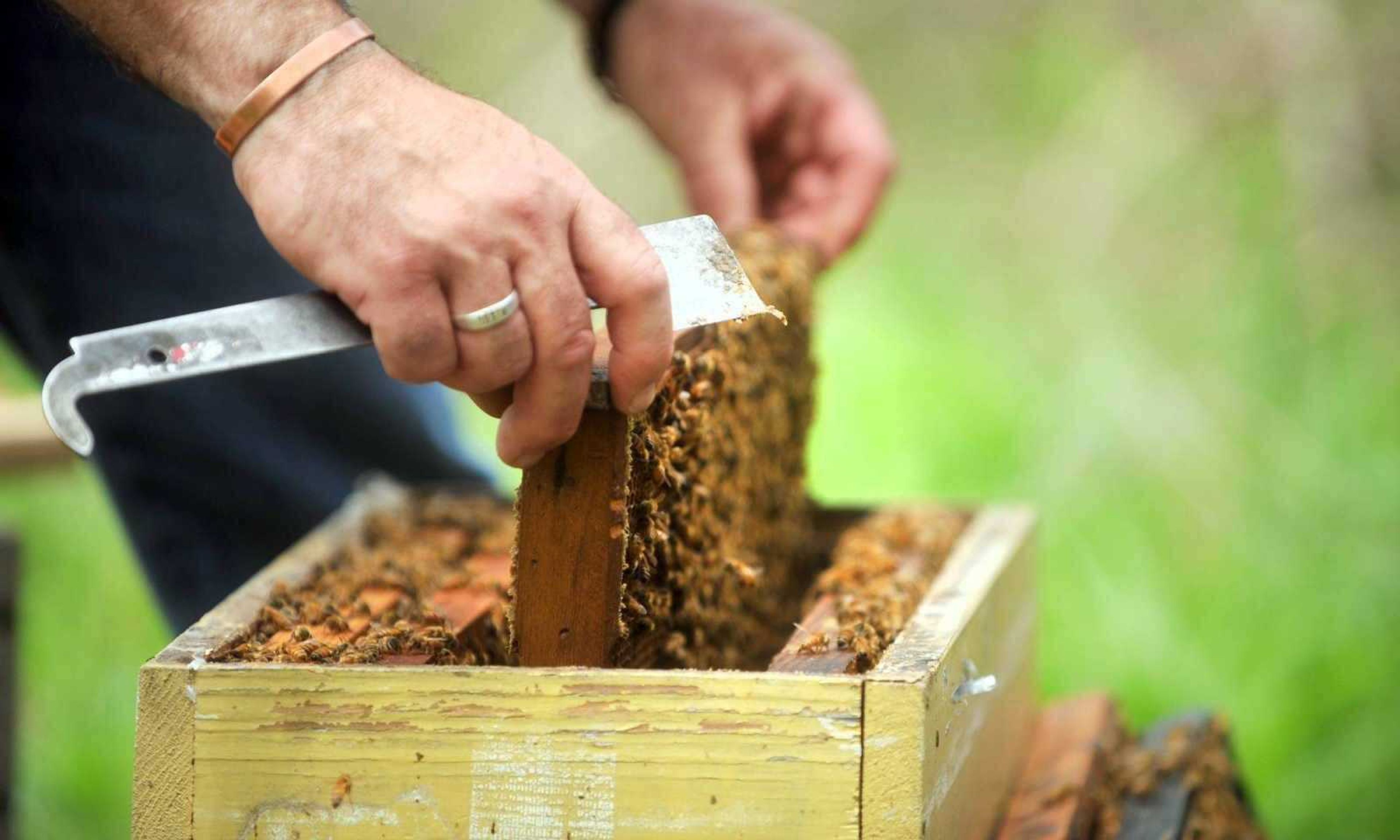Missouri scientists create technology to track buzzing bees
COLUMBIA, Mo. -- Researchers trying to track bee activity to find areas where the bee population is declining soon could be using an acoustic system developed by a research team that includes scientists from Missouri universities. Scientists developed an acoustic listening system to monitor bee activity in a specific area, The Columbia Missourian reported. ...
COLUMBIA, Mo. -- Researchers trying to track bee activity to find areas where the bee population is declining soon could be using an acoustic system developed by a research team that includes scientists from Missouri universities.
Scientists developed an acoustic listening system to monitor bee activity in a specific area, The Columbia Missourian reported. The system's small microphone records the pitch and frequency of a bee's buzzing and sends that information to data-storage devices such as an iPad or USB drive.
The goal is to analyze bee activity for several years and give warnings if bee populations are declining in an area, said University of Missouri biology professor Candace Galen.
"Which then could be a diagnostic or a warning sign that these are places where we need boots on the ground, people to go out and survey bees and see who's there and who isn't," Galen said.
The team includes scientists from Webster University in St. Louis, Lincoln University in Jefferson City and Appalachian State University in North Carolina.
The research comes amid reports bee populations have been declining in North America and Europe since the 1970s. "Colony collapse disorder" is related to mites, viruses, pesticides and other factors, according to the Missouri Department of Conservation.
The decline of bees is important because bees pollinate a large percentage of the world's food supply.
"We as humans are very dependent on (bees and other pollinators)," she said.
The system is cheaper than hiring observers to track bees. One device can pick up sound from 9 to 16 feet away, which is more sensitive than the average human ear. The system can record buzzing for about 96 hours a recharge.
"If I had a lot of money to spend on my field team, I could hire a lot of observers and send each of those observers out to different locations, but that's not nearly as efficient as having the little USB drives do this for us," Galen said.
The system can differentiate bees of various sizes and shapes, which is important for farmers because different crops rely on different bee-pollination methods.
The team conducted its research in the Rocky Mountains in Colorado, which has a relatively controlled environment with little urban noise, traffic or farm equipment.
The scientists published their study, "Flight of the bumble bee: Buzzes predict pollination services," in PLOS One on June 7.
Because the team now knows the system works in simple condition, it will be used at more complex situations with more noise and several types of plants that require different pollination methods.
The acoustic listening system also allows scientists to track bees without using trap studies or destructive sampling methods, which are more accurate but that kill bees. Galen said destructive sampling is more of an issue because of the decline in some bee populations, with some being including on the endangered species list.
Connect with the Southeast Missourian Newsroom:
For corrections to this story or other insights for the editor, click here. To submit a letter to the editor, click here. To learn about the Southeast Missourian’s AI Policy, click here.









